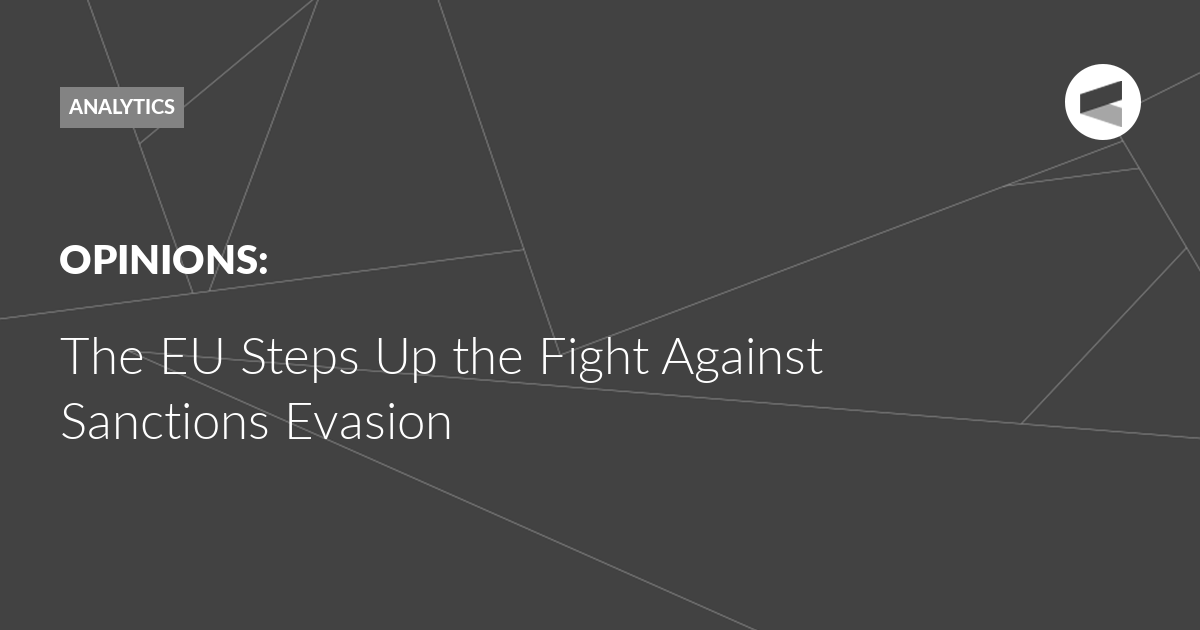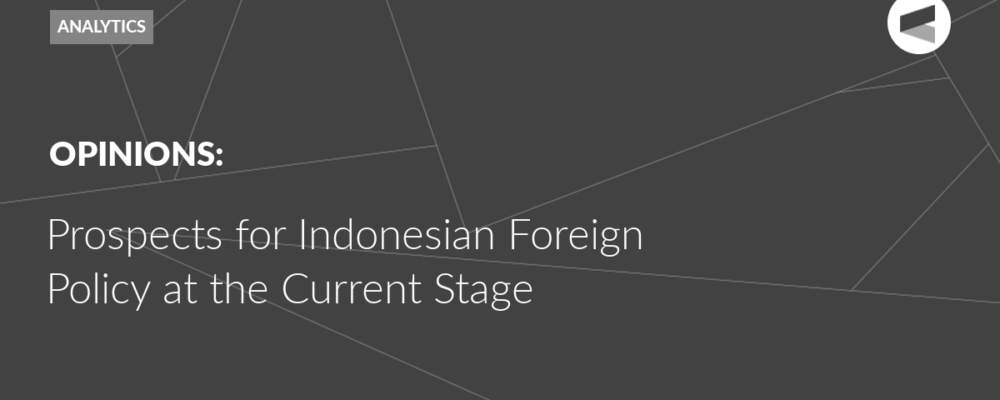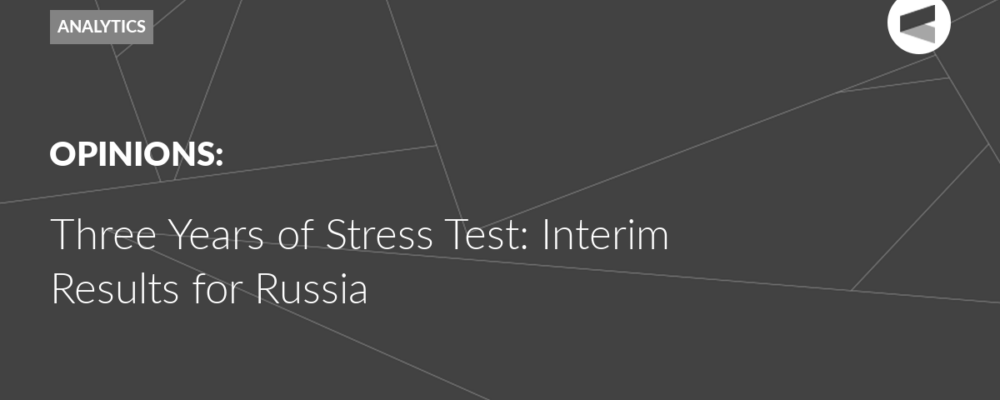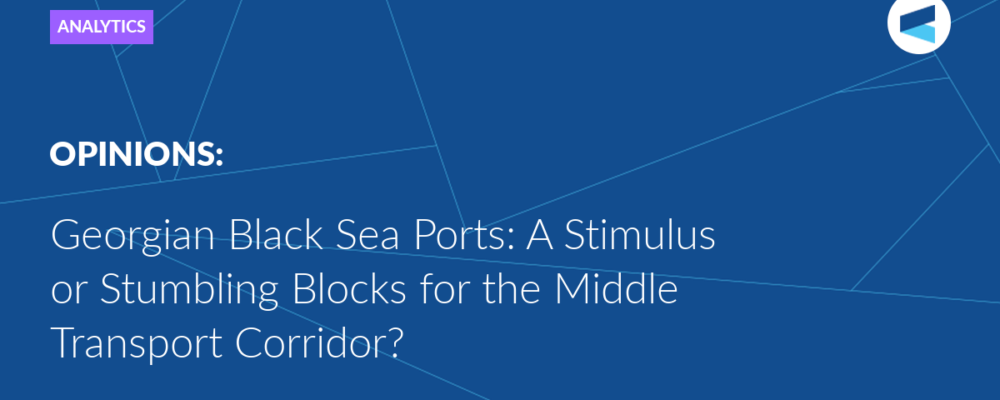The EU’s coercive measures no longer act as an alternative to secondary sanctions. On the contrary, administrative and criminal prosecution can be combined with the use of secondary restrictions, which creates additional risks for European businesses still working with Russian partners, writes Polina Chupriyanova, Program Coordinator at the Russian International Affairs Council.
The threat of applying secondary sanctions is often perceived as a key way to influence violators of foreign restrictions against Russia. This explains the great attention paid to this issue in research literature, the writings of experts and the media. Many sources focus on the risks of incurring administrative and criminal prosecution for evading sanctions legislation. The frequency of using both tools of pressure has increased significantly since February 2022 as a result of a significant expansion of financial sanctions and export controls against Russia. Unlike the United States, which has extensive experience in applying secondary sanctions, the EU’s experience in this area can be assessed as very limited. The focus on the law enforcement practice of EU countries against violators of the EU sanctions against Russia is updated taking into account a number of circumstances:
1. Since 2022, there has been a rapid increase in the dynamics of initiating administrative and criminal cases against the citizens and businesses of EU countries on the grounds that anti-Russian restrictions were violated.
The practice of applying coercive measures for non-compliance with the sanctions regime is not new. For example, in the United States, administrative liabilities for circumventing financial sanctions and export controls have been applied since the early 2000s. In 2017, the US Treasury imposed the first fine on an American oil company for working with a Russian enterprise belonging to a person on the SDN list. Around the same time, the first cases of initiating criminal investigations for more serious violations of export controls against Russia appeared. Since then, Washington has consistently increased the practice of administrative and criminal prosecution for circumventing the restrictions in force against Russia. The beginning of the military operation in Ukraine and the accompanying expansion of anti-Russian sanctions naturally contributed to the growth in the number of such cases. At the same time, the openness and publicity of the investigations provide an extensive empirical basis for analysing US law enforcement, tracking its dynamics and changes.
In the case of the EU, the law enforcement practice of member states began to develop noticeably only after February 2022. Before that time, open sources recorded only isolated investigations of violations of sanctions legislation. As the number of sanctions increased, mainly involving trade, the number of administrative and criminal investigations increased sharply and, according to some sources, it is estimated at more than 2 thousand cases. The geography of such investigations has also expanded significantly. Pinpoint criminal proceedings in Germany and the Netherlands until 2022 gave way to a broad practice of monitoring compliance with sanctions in almost all EU member states.
2. The lack of transparency in EU sanctions legislation creates additional risks for Russian and foreign entities when conducting business under the EU’s jurisdiction.
The presence of contradictory wording in EU sanctions legislation may contribute to inconsistent and, in some cases, incorrect interpretations of provisions by national authorities and relevant agencies, including in the context of ensuring control over compliance with the restrictions. In July last year, the attention of Russian experts was attracted
to reports of the seizure of the personal vehicles of Russian citizens entering the territory of the European Union. The arrests were initiated amid expanding import controls against Russia and restrictions on the import to the EU of a wide range of goods, including cars, cameras, household appliances, chemical products, etc.
Citing the fact that the provision of the Council Regulation (Article 3i of Regulation 833/2014) did not include any exceptions for personal use, German customs authorities seized the car of a Russian citizen on the grounds that the person in question had violated EU sanctions legislation by importing goods prohibited for import (in this case, vehicles) into its territory. After a preliminary investigation by the local prosecutor’s office, the Russian citizen managed to get the car back. At the same time, already in September 2023, the European Commission confirmed the absence of any exceptions for products and transport for personal use, which allows for further seizures of the property of Russians upon entry into the territory of EU countries.
On the one hand, the aforementioned case does not mean that the property of Russian citizens will be freely seized in any EU country in the event of a minimal suspicion of violations. On the other hand, the very existence of non-transparent provisions in the EU legislation and their interpretation creates additional risks for working under an EU jurisdiction, even in those areas that are not formally subject to restrictions.
3. Recognising effective control over compliance with the restrictions regime against Russia as a priority for EU sanctions policy.
Since February 2022, the supranational bodies of the European Union have actively participated in developing a specialised legal framework and facilitating the investigation of violations in EU countries. Among other things, there is the role of the EU Parliament and Council in eliminating imbalances in the activity of national bodies in the field of law enforcement. Earlier studies have shown that such imbalances contributed to the fact that transactions and operations prohibited by law are successfully controlled in some member states, but continue to be carried out unhindered in others. This required the harmonisation of national legislation of EU states in the field of implementation of coercive measures. In April 2024, a draft Directive was approved, defining uniform parameters for establishing administrative and criminal liability, penalties for violations, including fines and prison terms, and mitigating or aggravating circumstances. The provisions of the Directive should be incorporated into the legislation of EU countries within a year and, as a result, contribute to uniform and effective control over compliance with the sanctions regime.
Another step in this direction was the active participation of supranational EU bodies in conducting investigations at the national level. Thus, in October this year, the European Anti-Fraud Office (OLAF), together with Spanish law enforcement authorities, arrested
four suspects for evading sanctions (three of whom are Russian citizens) for allegedly supplying chemicals to Russia. Among other things, OLAF’s role is to monitor suspicious trade flows, identify potential attempts to circumvent EU sanctions, and prevent illegal transactions.
Given the specifics of EU law enforcement, its analysis is complicated for a number of reasons. The key one is the lack of a single institution monitoring compliance with the EU sanctions regime, or at least several such institutions. By comparison, the US policy on sanctions enforcement is coordinated by OFAC when it comes to initiating administrative investigations and by the US Department of Justice when it comes to criminal liability for violations. The role of other agencies involved in the investigation can be described as auxiliary.
In the European Union, the individual member states are responsible for ensuring compliance with the law. Each of them has an extensive system of courts that have the right to decide on liability for circumventing sanctions. The specialised agencies, including customs authorities, agencies of various profiles, etc., also have broad powers in the field of law enforcement. The decision to disclose the violations under investigation or to keep them confidential also lies within the authority of each of these agencies. In other words, it seems difficult to assess the full picture in this area. At the same time, the available empirical data allow us to talk about a number of features of the current EU system for monitoring compliance with the sanctions regime against Russia.
The Valdai Discussion Club was established in 2004. It is named after Lake Valdai, which is located close to Veliky Novgorod, where the Club’s first meeting took place.
Please visit the firm link to site






